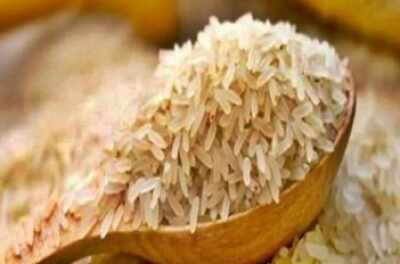New Delhi, 22 June (IANS). The ongoing struggle between Iran and Israel has started affecting India’s basmati rice trade. On Sunday, exporters warned that if the situation does not improve soon, the payment crisis could arise and the prices of rice may fall drastically.
Talking to news agency IANS, President of All India Rice Exports Association, Satish Goyal said, “More than one lakh tonnes of basmati rice to be sent to Iran is still stuck on Indian ports. Iran is a very important market for us. Iran is about 18 to 20 percent of India’s total rice exports. Every year we export about 1 million tonnes of basmati rice.”
Goyal said that the business has not yet been completely interrupted. But due to delay in export process, serious financial stress can arise due to uncertainty on payment. If this struggle continues, there will be a shortage of cash in the local market. Prices have already fallen by four to five rupees per kg and if the situation worsened, this decline may increase even more.
He said, “Now a major challenge before exporters lack insurance coverage during war. No insurance company covers the war risk for ships entering the struggle areas. This means that if something happens during transport, exporters have to suffer full loss. The situation got worse after the American struggle was involved in the struggle. Till tomorrow (Saturday) night we were hopeful that things would not be calm, but now the situation has no more, but now the situation has become an indefinite situation. Is.”
Goyal said, “Karnal of Haryana is a major center of Basmati rice exports. About 25 to 30 percent of the total exports of India are from this area. Exporters of this region have been trade with Iran for the last 15 to 20 years without any interruption. A meeting with Union Commerce and Industry Piyush Goyal is scheduled on 24 June to discuss the crisis.”
-IANS
PAK/AK
